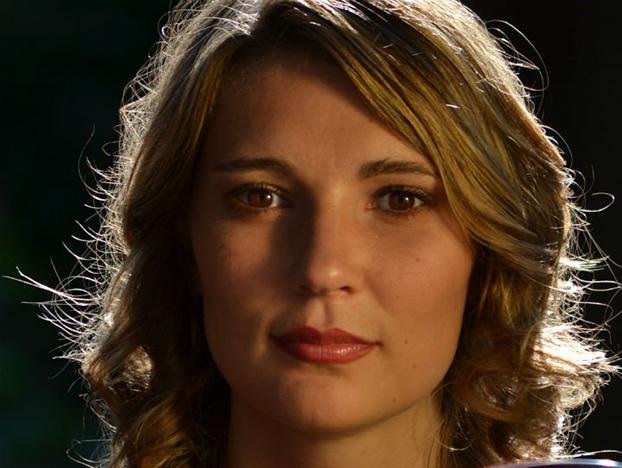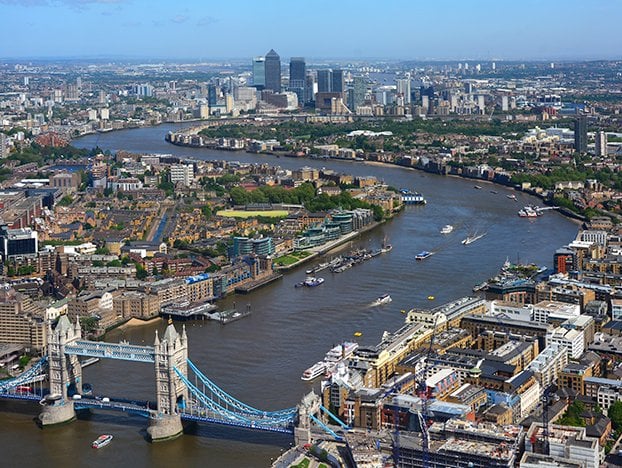
Study with us in London
Find out what makes London such an exceptional place to be a student.
find out moreThe Master of Music (MMus) programme is designed for students wishing to be professional musicians: performers and composers. It aims to equip students with the necessary musical skills, insight and experience required by the contemporary profession in its widest sense but with a focus on the Western Classical and Jazz traditions.
Our named awards: Collaborative Piano, Composition, Performance and Performer-Composer each offer comprehensive specialist training pathways. (Find out more in Course Details).
Key Features
This is a Level 7 programme which enables graduates to create music as instrumentalists, vocalists or composers at a highly professional and employable standard. The programme can be completed over two years (full-time), or four years (part-time).
Successful completion of the MMus programme of study can lead to one of the following postgraduate awards:
Master of Music (Collaborative Piano)
This named award offers first study keyboard students the opportunity to work as artistic collaborators with instrumentalists, singers, dancers or other artists. You will specialise in one or more of the following areas:
The specialist skills and knowledge acquired will prove invaluable after graduation.
Master of Music (Composition)
This named award offers composers the opportunity to study at master’s level and advance and transform 21st century music-making within the vibrant and experimental community of our Composition Department.
Master of Music (Performance)
This named award offers musicians in all performance disciplines the opportunity to study at master’s level to hone your individual voice and continue to develop as an innovative performing artist.
Master of Music (Performer-Composer)
This named award is aimed at students who are both proficient composers and skilled performers, and who have identified the integration of composition and performance as a key element of their practice. Increasingly, the music industry finds graduates with multiple skill sets and a fluidity of musical approach to be more employable.
This pathway presents students with a unique offering within the UK conservatoire sector. Applicants will need to evidence compositional experience and, crucially, a sense of artistic openness and adventure. However, it is not essential that they are as formed as a composer as they are as a performer.
This programme comprises compulsory core modules designed to develop students’ individual technical and interpretative skills in their principal study discipline through one-to-one and group tuition, as well as through a wide range of departmental and cross-department solo, small group/chamber music, and large ensemble activities, in which settings they will be able to develop a range of artistic and related skills relevant to their professional aspirations. In addition, students will undertake a research module (‘Research Lab’) which provides a foundation for Masters level critical thinking and which underpins all aspects of the programme. The programme also offers a range of electives, through which students will be able to develop and explore a subject appropriate to their developing artistic profile and which will enhance their employability in the professional world.
The programme also offers a range of electives, through which you will be able to develop and explore subjects appropriate to your developing artistic profile and which will enhance your employability in the professional world. This module is taken in your first full-time year and you will have the opportunity, if you wish, to develop this subject further through the second-year Personal Specialism module.
The list below gives an indication of the options available (subject to change).
The programme is designed to allow the skills and experience of the individual student to flourish and for new skills and insights to be gained. The programme is structured to enable progressive development through the material studied and the assessments undertaken, leading to your increased autonomy and independence as a musician, in preparation for professional life and/or further study, for example on the Trinity Laban Artist Diploma or Research Degree Programme.
This programme assumes 2,400 learning and teaching hours with at least 610 hours average contact time.
The programme aims to enable you to develop independent learning strategies for lifelong learning. Your tutors will regularly encourage you to reflect on learning and to formulate personal programmes of study and targets for learning.
Learning takes place through a blend of formal tuition, experiential learning and personal study. Instrumental, composition, or vocal tuition is the central element of the provision in the Principal Study 1 and 2 modules. These consisti of individual one-to-one learning, group tuition, rehearsals, workshops, seminars and masterclasses. Students will develop and contextualize their individual tuition within a broad range of solo, group, and ensemble activities.
Other MMus modules, such as the Research Lab Electives or Personal Specialism modules are delivered through formal taught sessions, seminars and tutorials, and consolidated in extensive self-study. Most learning is delivered in small groups, and wherever possible practical experience is blended with theoretical knowledge to develop students’ informed musicianship and employability skills. Throughout the programme, visiting artists, ensemble directors and lecturers expose the students to a variety of views and approaches current within the profession.
CoLab module learning is largely student-led, supported by mentors and interventions from a range of internal and external professional colleagues including staff from the Faculty of Dance.
Certain other modules/components in the programme may involve you studying with another student or students in a collaborative way. This may involve you working alongside, and/or undertaking leadership or supervisory responsibilities for other (possibly undergraduate) students engaged in projects with you as, for example, assistant directors or performers. Collaboration is considered to be at the heart of professional artistic life and, as such, opportunities such as these represent valuable learning experiences.
View the list of music Teaching staff.
Assessment methods mirror professional contexts as far as possible. In the assessment for the Principal Study 1 and 2 modules, performance/composition activities will include a combination of solo, chamber/small ensemble, large ensemble and technical work.
Other programme modules, including the Research Lab, Rediscover & Repurpose, Elective and Personal Specialism modules will feature a blend of written and practical assessment methods, oftne arrived at through negotiation between the student and module leader.
Our graduates go on to follow careers in solo, ensemble and orchestral performance, composition and arranging, creative project work, instrumental/vocal teaching, community project work, collaborative projects with other media/art forms, further postgraduate performance/composition study.
Applicants must demonstrate through the application, audition and interview procedure the potential to carry out detailed investigations of topics in which they have a particular interest, and to communicate their ideas coherently and effectively to others. They will show the capability to deliver, at the end of the relevant programme, a series of performance, written and/or oral submissions, which will display critical awareness and the ability to communicate their ideas effectively.
Applicants for whom English is not their first language should demonstrate proficiency in English equivalent to IELTS 6.5 overall with a minimum of 5.5 in all 4 areas /Trinity College London Integrated Skills in English III (ISE III).
Fees are reviewed annually. Home student tuition fees are aligned with the maximum tuition fee cap set by the UK Government. International tuition fees are subject to annual inflationary increases based on RPI-X. The following fees are confirmed:
| MODE OF STUDY | Home | International |
|---|---|---|
| Full-Time Year 1 (taken in 2024/25) | £11,950 | £23,600 |
| Full-Time Year 2 (taken in 2025/26) | £12,420 | £24,540 |
| Part-Time Year 1 (taken in 2024/25) | £7,440 | £14,750 |
| MODE OF STUDY | Home | International |
|---|---|---|
| Full-Time Year 1(taken in 2024/25) | £13,310 | £24,960 |
| Part-Time Year 1 (taken in 2024/25) | £8200 | £15,510 |
| MODE OF STUDY | Home | International |
|---|---|---|
| Full-Time Year 1 (taken in 2023/24) | £11,490 | £22,690 |
| Full-Time Year 2 (taken in 2024/25) | £11,950 | £23,600 |
| Part-Time Years 1 or 2 (taken in 2023/24) | £7,160 | £14,190 |
| MODE OF STUDY | Home | International |
|---|---|---|
| Full-Time Year 2 (taken in 2023/24) | £11,490 | £24,000 |
| Part-Time Years 1 or 2 (taken in 2023/24) | ££7,160 | £14,190 |
You can also view our Current and Past Fees.
This information can be found on our Costs of Living page.
Read about financial awards and external funding opportunities in the Fees and Finance section.
| UCAS | 800F (full time) / 800P (part time) |
|---|---|
| Location | King Charles Court |
| Duration | 2 years (full time) / 4 years (part time) |
| Start Date | September 2024 |

Find out what makes London such an exceptional place to be a student.
find out moreDerryck Nasib, French Horn